RE: Unit 7 Discussion Board Criminal law
Introduction
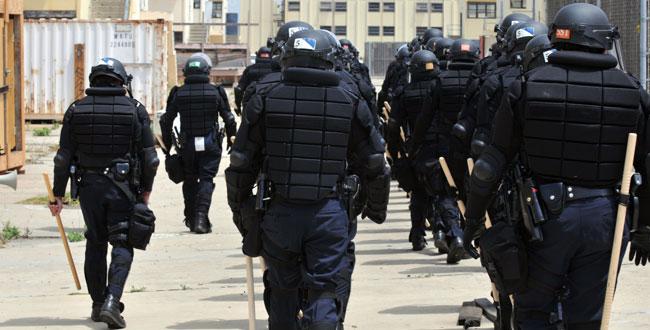
The First Amendment protects a person’s rights to freedom of speech, to assemble, and to freedom of association. When an individual or group convenes, law enforcement must carefully balance the First Amendment with public order and safety. To increase your understanding of crimes against public order, it is important to analyze the types of public order offenses and provide an overview of a Supreme Court case upholding the First Amendment right to assembly.
Cox v. Louisiana
Imagine this fact scenario: Less than one year after the enactment of the 1964 Civil Rights Act, a prominent African American minister in Louisiana—Reverend Cox—organizes a crowd of 2,000 students on the lawn 100 feet across the street from the courthouse jail.
He was protesting the arrests of 23 students who had participated in a sit-in at a downtown all-white lunch counter. The 23 students could hear his impassioned speech from their cells. He was encouraging the crowd to support those who were in prison by fighting for desegregation.
[Source: Cox v. Louisiana, 379 U.S. 536, 559 (1965)]
Types of Public Order Offenses
After Cox gave a speech, as a hush fell over the crowd, he raised his hand and told the very excited, angry, and frustrated group of 2,000, "Let's eat!"
Reverend Cox was arrested for “disturbing the peace,” “obstructing public passage” and “picketing near a courthouse.” These are types of public order offenses. [Source: Cox v. Louisiana, 379 U.S. 536, 559 (1965)]
These are the facts of the case of Cox v. Louisiana. The U.S. Supreme court held in that case that the statutes were unconstitutional. Reverend Cox’s conviction was overturned.
Social and political unrest often collides with public order statutes. Let’s examine specific public order offenses.
Breach of Peace and Disorderly Conduct
Acts that are designed to disrupt public order fall within disorderly conduct statutes. The majority of these crimes are listed as misdemeanors. However, where threat of injury or use of dangerous weapons is involved, the offenders are subject to severe charges.
The types of breaches of peace are as follows:
Select each item to learn more.
| Vagrancy | |
| Loitering | |
| Array | |
| Public intoxication | |
| Carrying a weapon | |
| Keeping a disorderly house |
Introduction
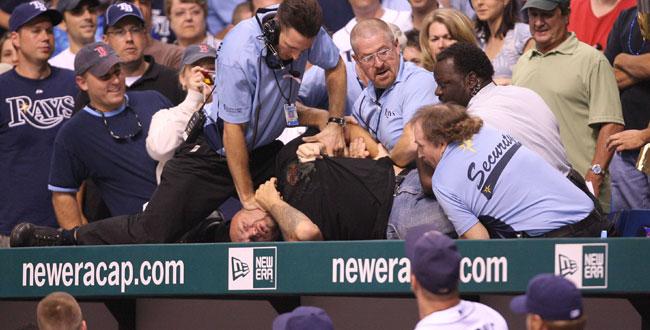
The premise behind disorderly conduct laws is to protect the peace and tranquility of a community. When peace is disrupted, law enforcement officers must enforce statutes designed to keep the peace. Fighting, public intoxication, and using words to incite a breach of peace are all disorderly conduct crimes and are subject to criminal sanctions.
Disorderly Conduct and the First Amendment
The First Amendment to the U.S. Constitution guarantees citizens the right to free speech. This amendment requires the government to have a legitimate state interest before it can restrict a citizen's right to speech.
Speech that can cause or is likely to cause injury to persons or property can be forbidden. “Fighting words” is speech intended to provoke violence. This type of speech is prohibited by criminal statutes
Disorderly conduct statutes prohibit specific acts intended to annoy, alarm, or inconvenience society.
Fighting and Affray
Not all fighting is unlawful. Licensed sport matches are permissible. Unregulated public fighting is prohibited by disorderly public fighting statutes, or affray.
Many of the acts listed in disorderly conduct statutes, such as picketing, protesting, marching and so on, are prohibited except where event sponsors obtain the necessary permits.
Prize fighting, which includes public boxing matches for gain, is prohibited without a license. However, private boxing matches are not prohibited if the rules of boxing are followed.
Public Intoxication
Public intoxication is the crime of being intoxicated in public. Most criminal statutes require additional conduct to constitute public intoxication. The element of social disruption is generally required.
The crime of public drunkenness can serve both a social benefit and an individual benefit. In cold states like Colorado, where snow storms are prevalent and temperatures reach record lows, statutes such as these can be used to permit law enforcement to incarcerate homeless persons in need, keeping them safe through the freezing nights.
Studies show that resources for the homeless are very limited. As the shelters fill, individuals are turned away and left to find shelter elsewhere. These municipal violations can give an officer the ability to arrest an individual and provide him or her with shelter for the night.

Alcohol and Drug Laws
We constantly hear that drug and alcohol laws regulate victimless crimes. Laws that prohibit driving while intoxicated (DWI) or driving under the influence (DUI) were designed to prevent severe car accidents, which often have fatal results.
Drivers can be held liable for either driving while their ability is impaired, or driving with a statutorily impermissible blood alcohol level.
Which driver is more culpable? A birthday girl, after having a glass of wine, crashes and kills a family of four. Her blood alcohol level is .08 or A soccer mom has one too many kids in the car (in violation of the state seatbelt law), and they are screaming. She loses focus, crashes, and kills a family of four.
Federal Anti-Riot Act, 1968
In 1968, only four years after the passing of the Civil Rights Act which gave equal protection to persons of different races as well as others, the federal government passed The Federal Anti-Riot Act.
This act greatly increased the non-violent movements of the 1960s because what was proscribed under the Anti-Riot Act was permissible if done in the form of non-violent protest.
Protest Without Violence
Many people mistake the non-violent methods of Gandhi, Dr. Martin Luther King, Jr., and others as protest without violence. In fact, the majority of southern boycotts and protests against segregation ended in violence—that is, the violence of law enforcement upon protestors. This violence captured America’s attention.
It was essential for protesters not to react and to remain in submissive positions in order to avoid prosecution under the new federal Anti-Riot Act.
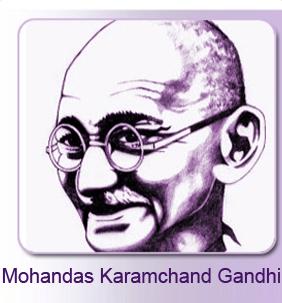
Violent Protests
However, not every group that assembled did so in peace, and in fact the Black Panthers, Malcolm X, and others made public announcements about their intent to use violence if violence was used on them. Malcolm X is known for his use of the words “by any means necessary.”
The self-defense doctrine drew attention under the Federal Anti-Riot Act. In most cases, violent groups were targeted.
In 1993, approximately 82 members of a group called the Branch Davidians in Waco, Texas died in a fire. The ATF and FBI reports indicate they died in a mass suicide. Others believe that the government acted as the aggressors. Should the Federal Anti-Riot Act have applied to the WACO situation?
Riot
A tumultuous disturbance of the peace by three or more persons assembled of their own authority
A gathering of three or more persons for the purposes of doing an unlawful act or for the purpose of doing a lawful act in a violent, boisterous, or tumultuous manner.
Inciting A Riot
The use of words or other means intended and calculated to provoke a riot.
Lynching
The taking, by means of riot, of any person from the lawful custody of any peace officer.
A crime that is committed when any person or persons rescues or attempts to rescue any person being held in lawful custody.
Introduction
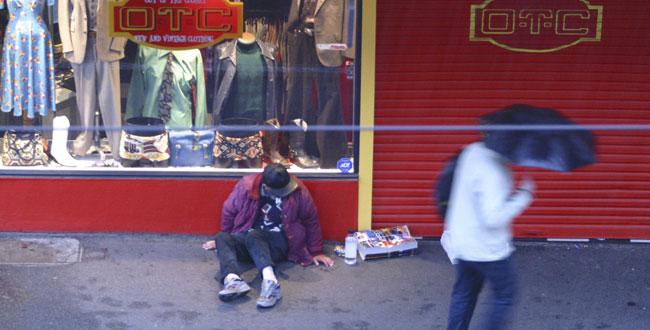
Public order offenses cover a wide range of acts, each of which has the potential to disrupt the peace in a community. Some argue that such laws discriminate against the poor or violate the Second Amendment, while others believe they are essential to maintain public order and decency.
Vagrancy and Loitering
Some legal theorists contend that there is no greater evidence of laws that condemn or outlaw poverty than those of vagrancy and loitering.
Our founding fathers began this country in part to escape elitist laws that denied opportunities for the poor to succeed. Note that the laws against vagrancy and loitering focus on the person “who can work but refuses to do so.” The mere living on the charity of others is not outlawed.
The mentally ill and disabled make up a large majority of the vagrant community. The disabled veteran, the person who has fallen on hard times, and of course the person who appears to have chosen to be homeless, are subject to vagrancy and loitering laws.
Should we be obligated to work? If you form a community of six homeless men and women who play music on street corners, or hold humorous signs giving the tired 9-to-5 worker a giggle, can you stand on a public street corner and ask for money? Does a person have the right to be born and choose to find a place in the world to exist as he pleases, or does simply being born make you a subject of the king?
Teenage Curfew
Teenage curfew laws vary greatly depending on the jurisdiction. Private industry has begun to assist states with problems caused by young boys and girls with nothing better to do than roam the streets at night.
Many non-profit organizations have begun to focus funding on after-school programs for both middle-school and high-school aged children.
Criminal justice professionals often find themselves hired to assist with high school parties or non-traditional after-school events such as motocross racing or skateboard competitions to assist the youth with finding positive outlets for their unspent energy.
Weapon Laws
The Second Amendment of the U.S. Constitution gives citizens the right to bear and own arms.
States permit ownership of weapons with a license. The state license requires a background check. The weapon owner may be required to agree to the following:
Not carrying a concealed weapon even though licensed to own it
Preventing access of the weapon to underage children without supervision
Not making certain alterations to the weapon
One of the federal government’s most prominent gun laws is the Brady Law, which provides strict rules for ownership of a weapon. The Brady Law requires a background check through a national system before the purchase of any weapon and a five-day waiting period. Other relevant laws include:
Select each item to learn more.
The Violent Crime Control and Law Enforcement Act of 1994
This federal legislation outlawed the sale of certain types of military weapons.
The Gun-Free-School Zones Act of 1990
This federal legislation prohibits intentional possession of a weapon within a school zone.
Introduction
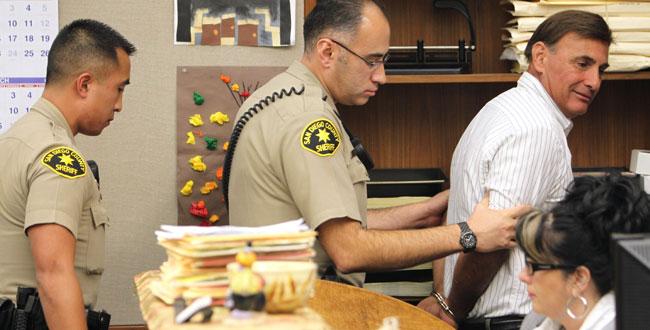
Crimes against the government range in severity from treason to contempt, and most of them are committed by regular people. Some crimes against the government are unique to special populations, such as public officials, persons testifying in court, and persons in lawful detention. To increase your knowledge of crimes against the government, it is important to understand the crimes of treason, perjury, and escape.
Suing Gun Manufacturers
States have not been successful in suing gun manufacturers. The commerce clause and the Second Amendment’s clear mandate on the right to bear arms have thwarted efforts to curtail the sale and manufacture of guns in America.
However, experts contend that many of the guns used to commit criminal acts were not directly purchased from a legitimate gun dealership or manufacturing company.
Many guns are imported into this country and are illegally distributed.
Immigration in the United States
Immigration is a political topic in this country.
On December 12, 2006, more than 1,300 people were arrested from Swift and Company meat packing plants around the country. The federal government raided the plants, looking for illegal immigrants.
The families of those arrested were given a call that their loved ones had been seized and would soon be deported.
News programs indicated that the United Way would be attempting to assist those children who lost both parents in the raid.
The detaining facilities have been reported to resemble concentration camps. What is the answer to the question: who has the right to be in America?
Treason
Dr. Martin Luther King, Jr.
Criminal syndicalism is the teaching and advocating for the use of unlawful acts to create political change. As mentioned before, Dr. King often encouraged the disturbing of the peace to make political change.
Criminal Syndicalism
Advocating the use of unlawful acts as a means of accomplishing a change in industrial ownership or to control political change.
Former President Richard Nixon
The famous 1976 film, All The President's Men, told the story of the investigative reporting conducted by Bob Woodward and Carl Bernstein, who uncovered the Watergate scandal that effectively forced Nixon's resignation. Was this treason?
White House
The Dixie Chicks publicly made comments that condemned America's involvement in Iraq. They also said things that defamed President Bush. Were the Dixie Chicks committing sedition?
Sedition
A crime that consists of a communication or agreement intended to defame the government or to incite treason.
Perjury
A person who lies under oath commits the crime of perjury.
Perjury
The willful giving of false testimony under oath in a judicial proceeding. Also, false testimony given under any lawfully administered oath.
Disrespect shown to a recognized court of law can bring the punishment of contempt of court. Soliciting a person to lie in court is called subornation of perjury.
Subornation Of Perjury
Unlawfully procuring another to commit perjury.
A person who is found to be in criminal contempt can be sentenced to jail and fined. Direct contempt occurs in court and indirect contempt occurs outside of a court of law.
Criminal Contempt
Deliberate conduct calculated to obstruct or embarrass a court of law. Also, conduct intended to degrade the role of a judicial officer in administering justice.
Obstruction of Justice
Obstruction of justice is a crime often used for political motives. Conducting rallies and protests can be deemed to obstruct justice if they interfere with the administration of the judicial system or law enforcement officers.
Criminal justice professionals must learn to balance the spirit behind all public order statutes, which is to protect individuals from being harmed or injured.
The principles of free speech and assembly must be remembered when officers administer force to enforce public order statutes.
Resisting arrest is known as obstructing justice, however the arrest must be a lawful arrest.
Obstruction Of Justice
An unlawful attempt to interfere with the administration of the courts, the judicial system, or law enforcement officers, or with the activities of those who seek justice in a court or whose duties involve the administration of justice
Resisting Arrest
The crime of obstructing or opposing a peace officer who is making an arrest.
Escape
When a person has been lawfully detained, it is a crime to escape from detention.
There is a difference between the crime of evading and that of escape. The defendant who has escaped has already been captured. When the police are attempting to capture the defendant, his resistance constitutes evading.
Escape
The unlawful leaving of official custody or confinement without permission, or the failure to return to custody or confinement following an official temporary leave.
Crimes Committed by Public Official
A public official who is working within the scope of his or her employment and commits a criminal act can be held liable for both the act and the abuse of his or her position, also called misconduct in office.
The crime of bribery often has involved public officials. Persons who hold public offices are not permitted to take monetary benefits in exchange for promises or favors.
Misconduct In Office
Acts that a public office holder (1) has no right to perform, (2) performs improperly, or (3) fails to perform in the face of an affirmative duty to act.
Bribery
The offense of giving or receiving a gift or reward intended to influence a person in the exercise of a judicial or public duty.
The mentally ill and disabled make up a large majority of the vagrant community. The disabled veteran, the person who has fallen on hard times, and of course the person who appears to have chosen to be homeless, are subject to vagrancy and loitering laws.
Should we be obligated to work? If you form a community of six homeless men and women who play music on street corners, or hold humorous signs giving the tired 9-to-5 worker a giggle, can you stand on a public street corner and ask for money? Does a person have the right to be born and choose to find a place in the world to exist as he pleases, or does simply being born make you a subject of the king?
hear his impassioned speech from their cells. He was encouraging the crowd to support those who were in prison by fighting for desegregation.
[Source: Cox v. Louisiana, 379 U.S. 536, 559 (1965)]



